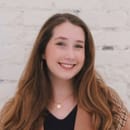Since its founding in 1996, the Rivkin Center has been a catalyst for national education on women’s health. This 501(c)(3) nonprofit based out of Seattle, WA, aims to provide information and resources to young women while encouraging them to become advocates for their health.
The Rivkin Center’s mission is “to improve women’s health by helping them prevent, detect early, and survive ovarian and breast cancer.” In the United States, 1 in 8 women (12% of all women) will be diagnosed with breast cancer in their lifetime. While the rates of ovarian cancer are lower than breast cancer — only about 1 in 75 women will be diagnosed in their lifetime — ovarian cancer tends to be much more dangerous and fatal. The symptoms of ovarian cancer can be harder to detect, so this cancer is often only found in its final stages.
In order to provide education and empower women to take action over their health, the Rivkin Center’s Education Program hosts Rivkin Edu Parties — formerly known as CanCan Parties — at various college campuses and student organizations across the US as a way to teach young women about what they can do to prevent and detect these types of cancers. Each Rivkin Edu Party involves both a health instructor and a cancer survivor, and their unique combination of stories and perspectives helps to create a well-rounded educational and interactive event.
This week, Her Campus Utah partnered with the Rivkin Center in order to host a Rivkin Edu Party for all of our writers. While I am involved with other groups that have hosted Rivkin Edu Parties in the past, I was looking forward to this event because they tailored the event to Her Campus’s emphasis on education and awareness. Throughout the party, it was clear that simply “knowing your body” and monitoring to see what is normal (and then recognizing what is abnormal) can prove to be invaluable to your health.
At our Rivkin Edu Party, Jo and Helen talked with us about their stories, and they both shared crucial information that they wish they had when they were in college. As Jo shared her story, she highlighted that if you ever have questions, disagree with a certain doctor, or want more information, getting a second opinion can never hurt. Research has proven that physicians tend to dismiss women’s health concerns, so getting a second opinion is always an option to ensure that you are getting the care that you need. Then, as Helen told us about her experiences, she stressed that although it may be uncomfortable, it is essential to have potentially difficult conversations with friends and family. Unfortunately, there are some societal taboos placed around discussing breast and ovarian cancer, but the more we are able to talk and share our stories, the more the greater public will be aware of these potential health issues.
In general, cancers are mostly tied to three main causes: family history/genetics, environment, and lifestyle. Knowing your family history can help you to be more aware of what you may be genetically predisposed to; if there is a history of breast cancer in your family, the age at which you start screening tests may change. In terms of environment — which includes things like air quality — there’s not as much agency in the hands of the individual, but it is still important to be aware of these possible health implications. Lastly, taking control of your lifestyle is the easiest way to control or reduce your risk of getting cancer. Quitting smoking, cutting back on alcoholic beverages, and working out for about 150 minutes a week can all help improve your health.
Through Rivkin Edu Parties, the Rivkin Center does an excellent job of informing young women about their bodies and how they can take control of their health. Currently, the Rivkin Center is looking for more campus ambassadors to continue their mission of spreading education and awareness of breast and ovarian cancer. If you’re interested in learning more about this program, you can find information on their website.
Photo Credit: Her Campus Utah (Ellie Bresler)



